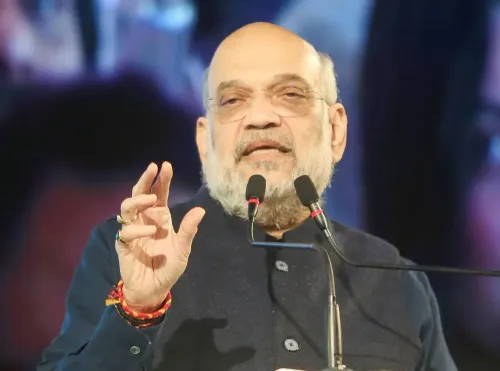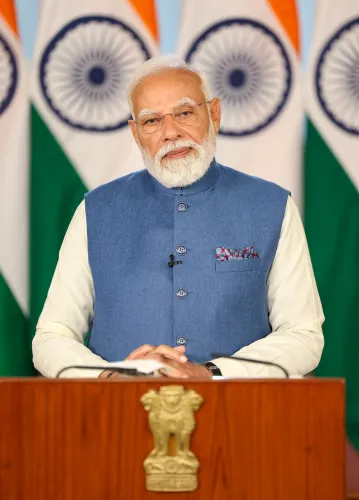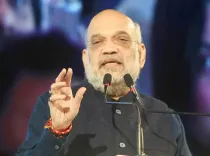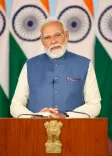How Will Maharashtra Benefit from the Indo-UK Trade Agreement?
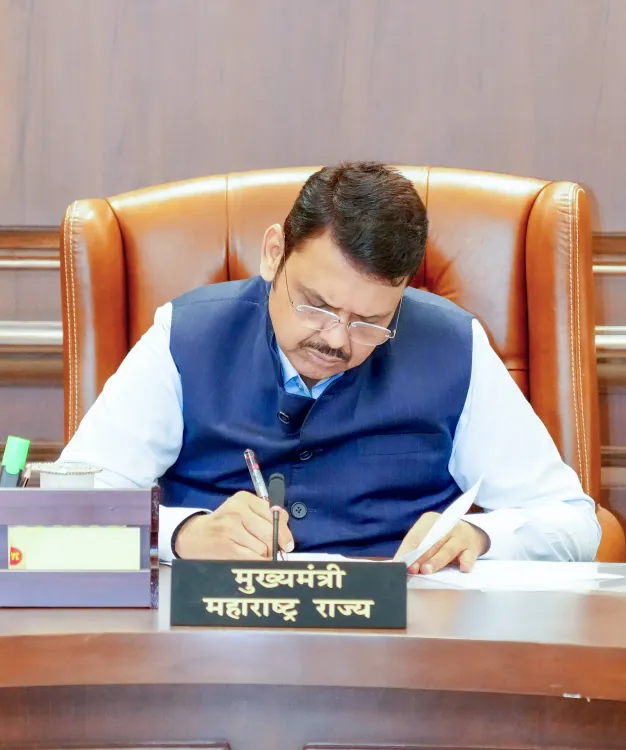
Synopsis
Key Takeaways
- Farmers in Maharashtra to benefit from increased exports.
- Zero-duty access for Kolhapuri leather products.
- Services sector to enjoy enhanced market access.
- Significant trade growth expected by 2030.
- Streamlined visa procedures for Indian professionals.
Mumbai, July 24 (NationPress) Maharashtra's Chief Minister Devendra Fadnavis announced on Thursday that the state is poised to reap substantial benefits from the groundbreaking India-UK Trade Agreement. In a post shared on X, Fadnavis expressed his gratitude, stating: “Congratulations to Hon PM Narendra Modi Ji for this significant India–UK Free Trade Agreement, which offers considerable advantages to Indians, particularly benefiting Maharashtra’s farmers, artisans, and service sector!”
He elaborated: “Farmers in Maharashtra are expected to benefit from enhanced exports of mangoes, grapes, jackfruits, millets, and organic produce. There will be improved international reach and profit margins for turmeric, pepper, and cardamom. The Kolhapuri leather footwear industry will receive a significant boost with zero-duty access for leather products and footwear, enhancing the competitiveness of MSME hubs like Kolhapur on a global scale. This visionary agreement opens new avenues for Maharashtra's rural economy and traditional industries. I extend my gratitude to PM Modi for empowering our farmers and artisans on the international platform.”
The government release indicated that this Free Trade Agreement (FTA) marks a pivotal step in India's collaboration with major developed nations, highlighting a mutual commitment to strengthening economic integration.
As the world’s fourth and sixth largest economies, India and the UK’s bilateral interactions hold significant global economic importance.
The signing of the India-UK Comprehensive Economic and Trade Agreement (CETA) follows the successful conclusion of negotiations announced on May 6, 2025. Current bilateral trade between the two nations stands at approximately $56 billion, with a target to double this figure by 2030.
CETA guarantees unprecedented duty-free access for 99 percent of India’s exports to the UK, encompassing nearly the entire trade spectrum.
This is anticipated to unlock new opportunities for labor-intensive sectors such as textiles, marine products, leather, footwear, sports goods, toys, and gems and jewellery, alongside rapidly growing industries like engineering goods, auto components, and organic chemicals. The services sector, a vital component of India’s economy, will also enjoy extensive benefits.
The agreement facilitates improved market access in IT and IT-enabled services, financial and legal services, professional and educational services, and digital trade. Indian professionals, including those deployed by companies to work in the UK across various service sectors, and those on contracts such as architects, engineers, chefs, yoga instructors, and musicians, will benefit from streamlined visa processes.
CETA is expected to significantly enhance trade volumes in the upcoming years, leading to job creation, increased exports, and fostering a deeper, more resilient economic partnership between India and the United Kingdom.


